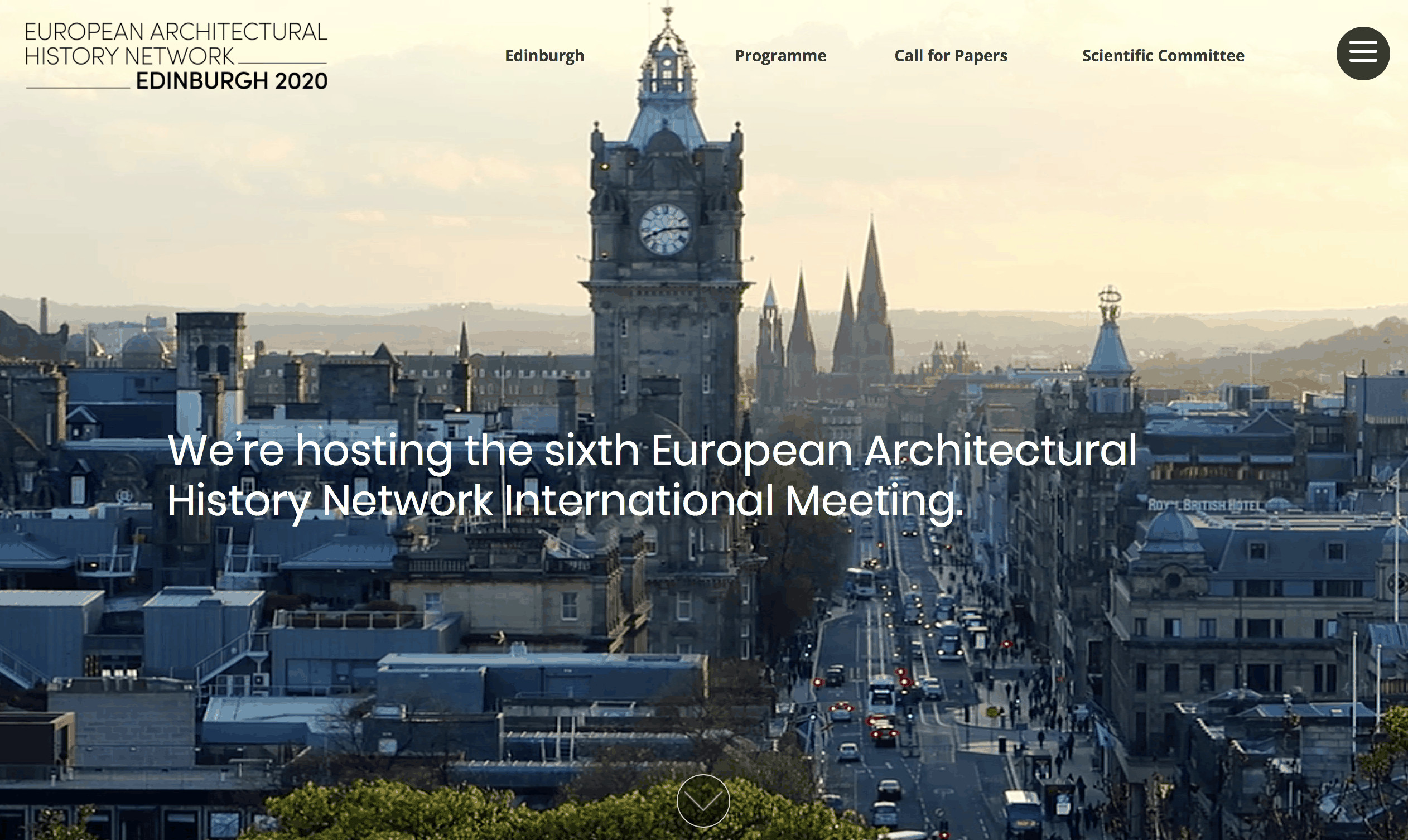17.05. – 20.09.2019
• University of Edinburgh
Edinburgh, Scotland, UK
Konferenz
EAHN 2020 CFP: Splitted Cultures/New Dialogues: Research in Architectural History and Theory
Brigitte Sölch & Carsten Ruhl
The sixth European Architectural History Network International Meeting
CALL FOR PAPERS – DEADLINE 20 SEPTEMBER 2019
Date of the Meeting: 10-13 June 2020
The call for papers (sessions) and discussion positions (round tables) is now LIVE. The deadline is 20 September 2019, and proposals should be submitted to the Session Chairs, whose details may be found below.
It is obvious that research in architectural history and theory is currently splitted into different academic cultures, namely art history and architectural theory. Of course, this was not always the case. Up to the second half of the 20th century art historians had a great impact on contemporary architectural debates and substantially contributed to theoretical issues. Simultaneously, authors trained both as architects and art historians guaranteed a constant flow between historical narratives and design practice, or even advocated the autonomy of architecture.
In late 20th century these productive intersections between art history, architectural history and architectural theory came to an end. Art history widely withdrew from contemporary debates on architecture and theoretical production, whereas architectural theory claimed the status of an autonomous non-historic discipline. We argue that this led to a paradox situation. In the 60s, in a time of political turmoils, theory substantially contributed to a critical discussion on widely accepted historical narratives hereby uncovering their political ideologies. Historical consciousness was fundamental to instutional critique and to debates on architecture as art, politics and theory. Since the 90s this totally changed.
Philosophy remained part of both disciplines. But whereas the iconic turn came to play a vital role in art history, which began to understood itself also as “Bildwissenschaften”, architectural theory became part of post-critical debates and was defined as projective thinking. Furthermore, great parts of theoretical thinking turned into a legitimation strategy for architectural positions, aesthetic preferences and architectural design practice. On the other hand architectural history no longer played an important role within art history. While theory was increasingly regarded as mere speculation, not seeing that some of art history’s most important contributions were exactly this, speculation. By consequence, the many attempts that had been made to differentiate between history and theory caused a great number of contradictions and misunderstandings rather than clarifying disciplinary bounderies.
Departing from this situation our round table is conceived as a twofold dialogue: It welcomes reflections on the historical, institutional and political reasons of the above mentioned split and contributions opening up a new dialogue between architectural history, theory and practice. This includes questions such as: What role do institutions and different genres of “writing” play for the intensity and diversity but also the reinforced interruption of the dialogue? To what extend is critique already part of the “economy of attention” and what does it mean to be critical? How far can history be understood (again) as critical practice?
Brigitte Sölch, Staatliche Akademie der Bildenden Künste Stuttgart
Carsten Ruhl, Kunstgeschichtliches Institut Goethe-Universität Frankfurt am Main
Contact : Brigitte Sölch, Email : brigitte.soelch@abk-stuttgart.de
https://eahn2020.eca.ed.ac.uk/papers/
Proposals
All proposals should include the following information:
- A proposal, in English, of no more than 300 words
- The title of the paper, or discussion position
- Your name
- Your professional affiliation
- A short curriculum vitae (maximum of two pages)
- A mailing address, email address and telephone number
Please note: papers may not have been previously published, nor presented in public. Only one submission per author will be accepted. All abstracts will be held in confidence during the selection process. In addition to the thematic sessions and round tables listed below, open sessions may be announced in due course – details to be provided on the conference website.
